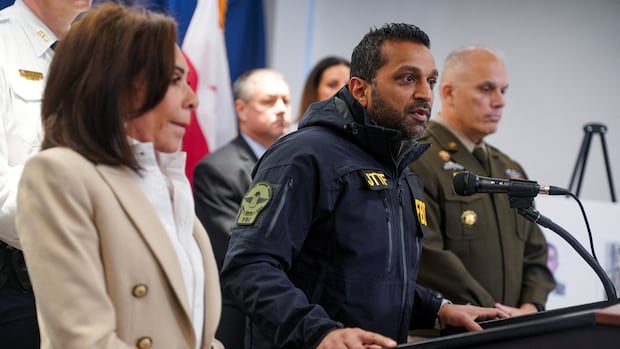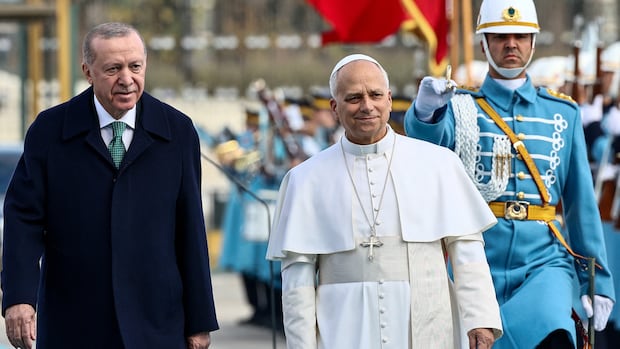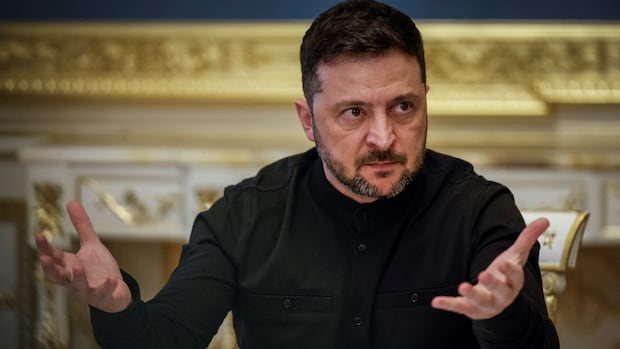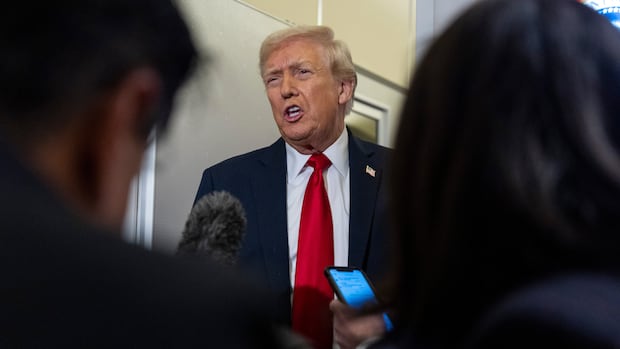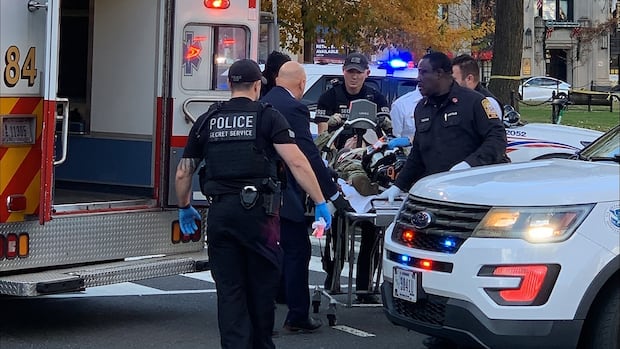Listen to this article
Estimated 6 minutes
The audio version of this article is generated by text-to-speech, a technology based on artificial intelligence.
A judge on Wednesday dismissed the Georgia election interference case against U.S. President Donald Trump and others after the prosecutor who took over the case said he would not pursue the charges, ending the last effort to prosecute Trump for his efforts to overturn his 2020 election loss.
Pete Skandalakis, the executive director of the Prosecuting Attorneys' Council of Georgia, took over the case last month from Fulton County District Attorney Fani Willis, who was removed over an "appearance of impropriety" created by a romantic relationship with the special prosecutor she chose to lead the case.
After Skandalakis's filing, Fulton County Superior Court Judge Scott McAfee issued a one-paragraph order dismissing the case in its entirety.
The case began nearly five years ago, when Willis made public her intent to investigate whether illegal attempts were made to influence the state's 2020 elections. That included a Jan. 2, 2021, phone call in which Trump was recorded urging Georgia's secretary of state to help find the votes needed to overturn his defeat in the critical swing state.
It was the most wide-ranging of four criminal cases brought against Trump in 2023. The resources and manpower required to pursue such a sprawling case made it unsurprising that no other prosecutor had an appetite to take it on after Willis was removed.
Latest criminal case against Trump to unravelThe abandonment of the Georgia case is the latest reflection of how Trump has emerged largely unscathed from a spate of prosecutions that once threatened his political career and personal liberty.
Former Justice Department special counsel Jack Smith, who had charged Trump with conspiring to overturn the results of the 2020 election and of hoarding classified documents at his Mar-a-Lago estate in Florida, dropped both cases after Trump won the White House last year. Smith cited longstanding Justice Department policy against the indictment of a sitting president.
And though Trump was convicted of felony charges in New York in connection with hush money payments during the 2016 election, he was sentenced in January to an unconditional discharge, leaving his conviction intact but sparing him any punishment.
WATCH | Explaining the Georgia case:Former U.S. president Donald Trump is now facing four indictments and 91 criminal charges, including a racketing charge in Georgia. Former assistant U.S. attorney Caren Morrison and CBC Washington correspondent Paul Hunter break down the cases and the potential impact they could have.Trump attorney applauds dismissalIt was unlikely that legal action against Trump could have moved forward while he is president. But 14 other defendants still faced charges, including former New York mayor and Trump attorney Rudy Giuliani and former White House chief of staff Mark Meadows.
Steve Sadow, Trump's lead attorney in Georgia, applauded the case's dismissal: "The political persecution of President Trump by disqualified DA Fani Willis is finally over. This case should never have been brought. A fair and impartial prosecutor has put an end to this lawfare."
Trump celebrated the news in a lengthy social media post, saying, "LAW and JUSTICE have prevailed in the Great State of Georgia, as the corrupt Fani Willis Witch Hunt against me, and other Great American Patriots, has been DISMISSED in its entirety."
The Associated Press has reached out to a spokesperson for Willis seeking comment on the dismissal.
 Steve Sadow, Trump's lead attorney in the Georgia case, speaks during a hearing at the Fulton County Courthouse, in Atlanta, on Feb. 16, 2024. (Alyssa Pointer/Reuters)
Steve Sadow, Trump's lead attorney in the Georgia case, speaks during a hearing at the Fulton County Courthouse, in Atlanta, on Feb. 16, 2024. (Alyssa Pointer/Reuters)Skandalakis said he undertook the review of the case "with an understanding of the grave seriousness with which many citizens view the events discussed in this case. I share their concerns and acknowledge the impact that my decision will have."
He said the indictment "alleges a compelling set of acts" that, if proven beyond a reasonable doubt, "would establish a conspiracy undertaken by multiple individuals" working to overturn the 2020 presidential election. In his filing, he walked through the different parts of the case to explain why he didn't pursue them.
Why the case fell to another prosecutorAfter the Georgia Supreme Court in September declined to hear Willis' appeal of her disqualification, it fell to the Prosecuting Attorneys' Council to find a new prosecutor. Skandalakis said earlier this month that he reached out to several prosecutors, but they all declined to take the case. McAfee set a Nov. 14 deadline for the appointment of a new prosecutor, so Skandalakis chose to appoint himself rather than let the case be dismissed right away.
He said Willis's office only recently delivered the case file — 101 boxes and an eight-terabyte hard drive — and he hadn't had a chance to review everything.
Skandalakis has led the small, nonpartisan council since 2018, and previously spent about 25 years as the elected district attorney for the Coweta Judicial Circuit, southwest of Atlanta. He noted in Wednesday's filing that he has run for office as both a Democrat and a Republican.
How the case fell apartWillis announced the sprawling indictment against Trump and 18 others in August 2023, using the state's anti-racketeering law to allege a wide-ranging conspiracy to illegally overturn Trump's narrow loss to Democrat Joe Biden in Georgia.
Defence attorneys sought Willis's removal after one revealed in January 2024 that Willis had a romantic relationship with Nathan Wade, the special prosecutor she hired to lead the case. The defence attorneys alleged a conflict of interest and said Willis profited from the case when Wade used his earnings to pay for vacations the pair took.
During an extraordinary hearing the following month, Willis and Wade testified about the intimate details of their relationship. They said the romance didn't begin until after Wade was hired and that they split the costs for vacations and other outings.
The judge rebuked Willis for a "tremendous lapse in judgment" but found no disqualifying conflict of interest, ruling she could stay on the case if Wade resigned, which he did hours later.
Defence attorneys appealed, and the Georgia Court of Appeals removed Willis from the case in December 2024, citing an "appearance of impropriety." The state Supreme Court declined to hear Willis's appeal.



